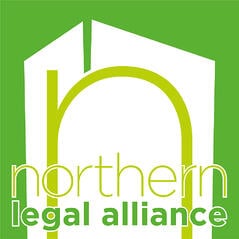Innovative Legal Business Models
Many of you will have read my colleagues’ article last week on what 2014 may hold for the legal profession (https://www.thecashroom.co.uk/legal_article/profession-2014/ ). One thing we are likely to see as a result of all the points mentioned in that article, is more by way of innovative legal business models.
We have already seen the emergence of businesses taking a new approach to a very old profession, such as LegalZoom, Rocket Lawyer and Riverview Law. While each of these may have slightly different models, the point is that they have taken a fresh look at (a) what clients want, and (b) how legal firms provide that to them.
While the precise need of each client will be different, on the whole, what clients want is a quick and cost effective solution to their particular issue. Your average individual or small business client does not care if you are the most intelligent lawyer in the country, what they want is you to buy/sell their house, sort out their divorce, resolve their personal injury claim, draft a basic employment contract, or set up their company as quickly as possible. For most, a lawyer is somebody they have to use in order to achieve a particular outcome, and the quicker and cheaper it is to reach that outcome, the better. For clients who require bespoke or detailed advice on a complicated area of law, there are always going to be firms that provide that, at a corresponding pricing point!
What the innovative firms have focussed on is providing services at a time, and in a way, that is most convenient for the client. They allow clients access to services in the evening and at weekend, rather than being bound to the usual appointment between 9am-5pm, Monday to Friday. Some have a portal or other way for clients to log in at any time of the day or night, to access free forms and documents, or to check on the progress of their case. They are also providing these services at a fixed cost – something which is becoming more and more attractive to clients.
These businesses have clearly taken a step back, looked at what they think is most important to clients, and done something about it. Out are hourly rates, postal correspondence, and waiting for an appointment to meet a lawyer face to face (unless necessary), and in are transparency over fees, fixed costs, and access for the client to his case/documents online, at a time convenient to the client. It would seem that now, even for lawyers, ‘consumer is king’.
I think that we are going to see more legal firms adopt these types of business model and feeing structures, and the expansion of the current market leaders (Legal Zoom have, after all, recently raised £122m of private equity funding – https://www.legalfutures.co.uk/latest-news/legalzoom-eyes-acquisitions-taking-major-private-equity-investment ). There may of course be plenty of work for those who remain more ‘traditional’ firms, where they have a long established and loyal client base. The point is that those firms need to consider how they keep that work in the future. Are the next generation going to be willing to pay more for ‘traditional’ legal advice too, because they know and trust the firm, or are they going to ‘google’ what they need, and use a firm that provide their services online, at a time more convenient, and at a cheaper price?
The important thing is to take time and think about all of this, how it might affect your firm, and make strategic decisions on how you approach the future. The legal market has changed, and clients’ behaviour has changed. As a result, I think that firms need to respond – either to change as well, or by taking steps to retain their loyal client base. Either way, doing nothing is not an option!
Gregor
Please connect with me on LinkedIn and Twitter for future articles and blogs


